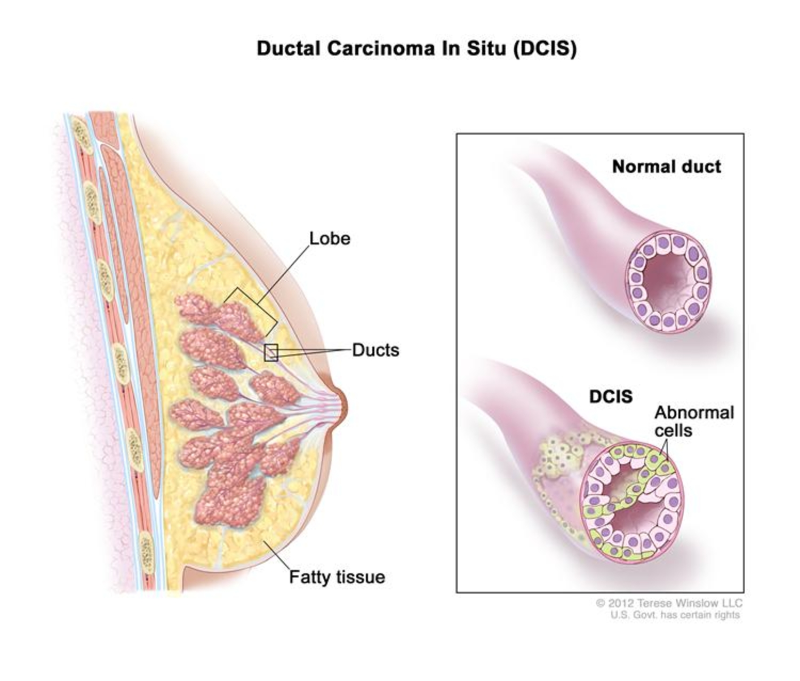 Not all breast cancers are the same. Some start in the part of the breast where milk is manufactured (lobular) and others start in the ducts that carry the milk to the nipple (ductal). Some breast cancers grow very slowly and respond to relatively gentle oral medications, while others are more likely to spread beyond the milk ducts into the surrounding breast or to other parts of the body and require harsh, yet potentially lifesaving chemotherapy. As mammography has over the years become more and more sensitive, a particular kind of breast cancer called ductal carcinoma in situ, or DCIS for short, is being diagnosed much more frequently. These very early cancers are often being diagnosed as tiny specks of calcium on a mammogram that require a magnifying glass to see, and are found so early that, if left untreated, more than half might never cause more serious illness. The challenge is to figure out which women with these very early cancers could forgo radiation, or even surgery, and which are destined to suffer a much more serious problem that needs more aggressive and perhaps life – saving treatment.
Not all breast cancers are the same. Some start in the part of the breast where milk is manufactured (lobular) and others start in the ducts that carry the milk to the nipple (ductal). Some breast cancers grow very slowly and respond to relatively gentle oral medications, while others are more likely to spread beyond the milk ducts into the surrounding breast or to other parts of the body and require harsh, yet potentially lifesaving chemotherapy. As mammography has over the years become more and more sensitive, a particular kind of breast cancer called ductal carcinoma in situ, or DCIS for short, is being diagnosed much more frequently. These very early cancers are often being diagnosed as tiny specks of calcium on a mammogram that require a magnifying glass to see, and are found so early that, if left untreated, more than half might never cause more serious illness. The challenge is to figure out which women with these very early cancers could forgo radiation, or even surgery, and which are destined to suffer a much more serious problem that needs more aggressive and perhaps life – saving treatment.
As outlined in a recent review in “Science” magazine, some researchers are looking at ways to figure out who might really benefit from treatment. Studies are now underway to use new diagnostic tests known as gene array analysis to see who is likely to benefit the most from surgery and radiation and who might just require monitoring. DCIS now accounts for about a third of new breast cancer cases, and by one estimate more than a million women will be diagnosed with DCIS by 2020. In the meantime a healthy lifestyle including eating as little food from animal sources as possible, minimizing alcohol, and getting regular mammograms remain one’s best defense.
And what about the role of genetics? Two decades have passed since the strong breast cancer genetic link between an inherited abnormal BRCA1 or BRCA2 gene was discovered – yet the BRCA genes only account for about 5% of breast cancers. What is the role, if any, of other discovered breast cancer predisposing genes? Next week: Beyond BRCA Gene Testing.
